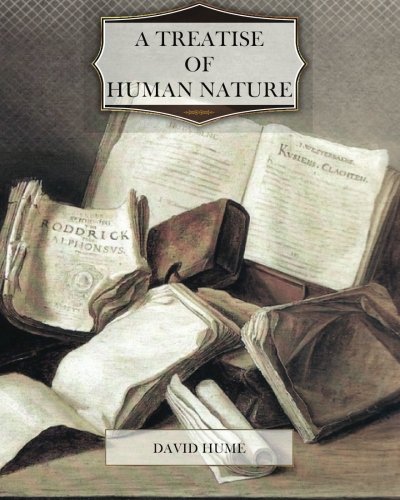



Full description not available
E**N
Tough Read
Sections of Hume’s magnum opus are brilliant, others so dense as to be nearly unreadable. After reading this, I realized I need a guide to help with understanding the nuances. Tough sledding for the non-philosopher.
D**R
Read the book that inspired Kant and the logical positivists
David Hume's radical empiricism was ahead of his time in many ways. In this Hume's first book on philosphy he makes a clean break from the limitations of the various philosphies which sprang from the work of Rene Descartes. In doing so he laid the groundwork for theories of truth where truth is a function of the human mind, and not just logic and the world at large.Hume makes a strong case for central role of empiricism in epsitemology. So much so that at times he sounds more like a Twentieth Century logical positivist, than a figure from the Eighteenth Century. Hume also argues for the importance of the workings of the human brain on what we consider true and real. In this sense he allows philosophy to expand beyond deductive circular reasoning, opening up arguments which overcame traditional philosphical problems. Elements of this psychological component to epistemology were employed by Emanual Kant and other later philosophers. Hume's ability to see and point out unjustified assumptions in philosphies which came before him, set a bar for clear justification which serious writters have struggled to overcome ever since.Because his arguments tend to be more descriptive than thorough, it is a more engaging read than many seminal philosophical works.
B**N
Influential Book
I downloaded this book after learning about the author's work on empiricism, which I agreed with, and which seemed very modern. Sadly I do not like his agnosticism. Nevertheless, it is,an important and influential book.
K**R
Good material, but hate the books format.
First published circa 1737, the book's original writing is a very interesting philosophical take on mankind at that time. However, I absolutely hate the format this publisher chose. It's over-sized width and poor layout serves absolutely no discernable purpose other than to be annoying to the reader. The layout creates very-wide paragraphs that span the full 8-inches of the page width and can be challenging to follow or back-read. Punctuation and layout editing it pretty-much non-existent. Pages have completely wasted space at the bottom unless you need to take notes (which I greatly prefer a side margin for that). I've heard there were similar problems when the book was originally published but I think a good editor could have cleaned it up with changing the content. Even a more narrow page could have helped. This wold have really kept the formatting from distracting from the material. I highly recommend finding a copy from a different publisher and see if you like it better than I did this one..
B**R
A fine version, but maybe not for students
Granted, this is the Treatise. However, I want to inform the students out there that you might want to go for the $1 version instead. The reason is that it is quite hard to cite this version due to its strange number of pages. If, like me, you are writing a paper on the Treatise, you will have to cite it by informing the reader of the book, chapter, section and paragraph. It would be easier to pay one dollar in order to merely cite the page of the Treatise. Other than that (and its tendency to print whole footnotes exactly where you don't want them, in the middle of a paragraph) it's a fine version.
S**S
a simple review of a complex read
From simple impressions bring simple ideas whereas complex impressions bring about complex ideas. This was dense read that was a struggle to get through at times but very deep thought from David Hume and understandable why it is a corner stone of philosophic thought. Hume’s idea of taking ideas of one example of a person or object and then conveying that idea on similar persons or objects goes a long way to explain how we interact with the world as well as why we fall victim to racism. Hume’s discussion of Justice and Government are also very clear on why both are critical to a functioning society.
H**R
Hume was a pretty good thinker and re enforces my own beliefs that ...
Hume was a pretty good thinker and re enforces my own beliefs that his era, some 400 years ago had a few observers of human nature that equal our own today. He remains in my mind for many reasons, but outstanding, in my opinion was his comment "assume the worst of all polititians"...Philosophy writings do not appeal to many readers, but this one is worth giving it a try.
A**O
Bravo Mr. Humes
Instead of quenching my thirst for knowledge Humes has expanded it. As with most philosophers he does get a little long winded but that's expected. The book is a tour de force on how knowledge can be attained through proper deduction and induction. I would even recommend this book to my enemies, especially the third part of the book which covers morality quite thoroughly.
S**N
Human nature
This is a cornerstone of modern philosophy and cements Hume as one of the great modern thinkers. This book gives insight into the mind that in part brings us the period we can refer to as the Enlightenment and as such is thought provoking and worthwhile for all who study or engage in philosophy.
A**W
A real bargain
A classic work that requires no evaluation but at his price it is better value than most of your other books.
K**A
Good.
Good to have to build knowledge and personal views from.
Z**E
good for budding philosophers
interesting read
A**R
Five Stars
As brand new
Trustpilot
1 week ago
1 week ago